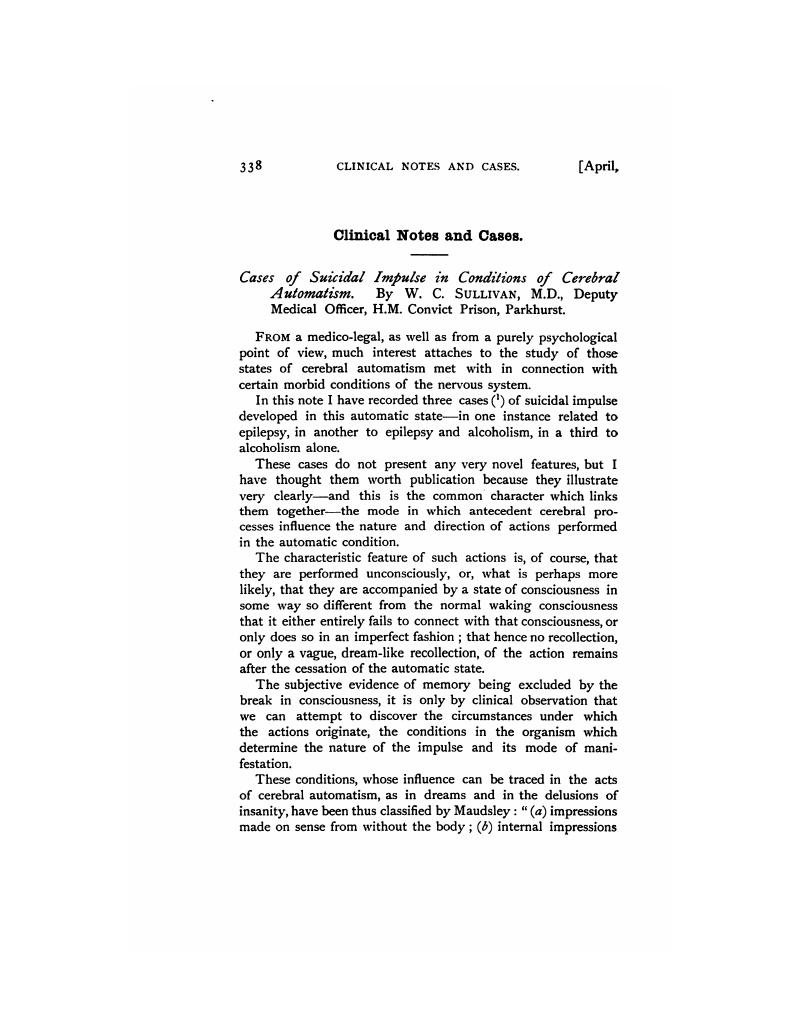No CrossRef data available.
Article contents
Cases of Suicidal Impulse in Conditions of Cerebral Automatism
Published online by Cambridge University Press: 19 February 2018
Abstract

Information
- Type
- Clinical Notes and Cases
- Information
- Copyright
- Copyright © Royal College of Psychiatrists, 1899
References
(1) These cases were observed in H.M. prison at Liverpool.—(2) Pathology of Mind, 1895.—(3) Journal of Mental Science, April, 1898.—(4) In the case Reg. v. Boakes, the Riverhead murder, tried since the above note was written, the conditions suggested in our hypothesis were realised. The accused had made love to the girl who was the victim of the murder, and his addresses had been rejected. On the morning of the crime she was passing his house with some female companions, when the prisoner ran out, pushed the others aside, and shot the girl dead, then turning the weapon upon himself. For the defence it was advanced that “fainting fits” and attacks of vertigo, from which prisoner suffered, were of epileptic nature, and that the crime was committed in a state of cerebral automatism. Despite the strong suggestion of motive and deliberation, this view was accepted by the jury, and the prisoner was found “guilty but insane.” [Cf. infra, Medicolegal Cases.—Ed.] Google Scholar


eLetters
No eLetters have been published for this article.